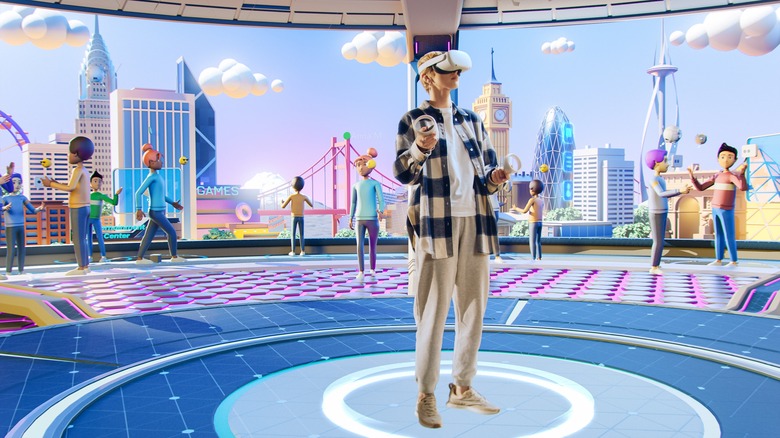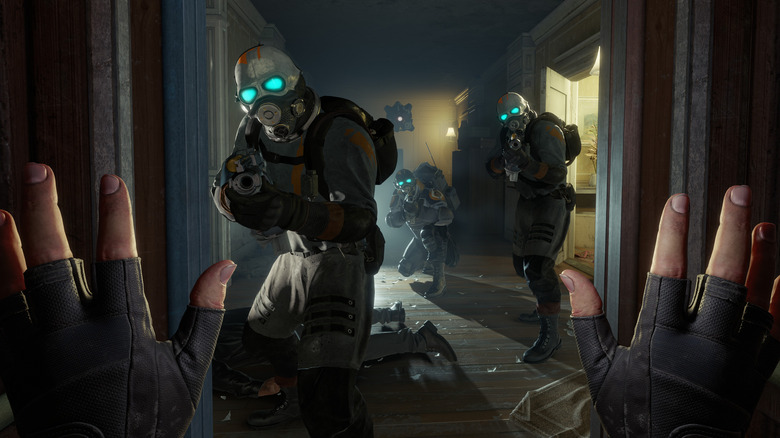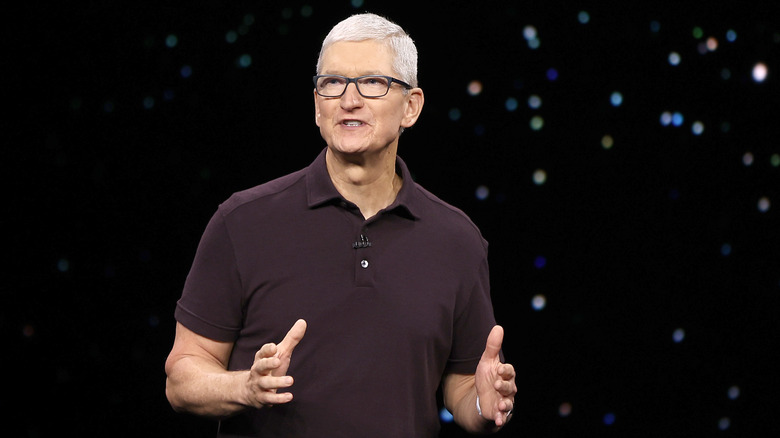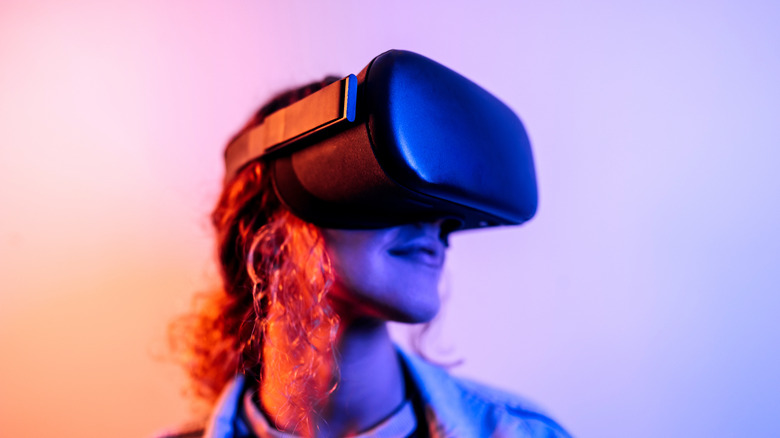VR's Moment Of Truth: It's Put-Up Or Shut-Up Time
In early June, Meta held its annual VR Gaming Showcase — an event meant to highlight the games coming out on its Quest platform over the next 12 months. Unfortunately, what should have been an event designed to stoke up excitement and anticipation was instead a highlight reel of everything wrong with the VR medium at the moment.
Most of the games were either remakes, ports, or sequels. Many of them were graphically horrific, and the gameplay on display in many of the trailers didn't look enticing at all. VR is a platform with so much potential and could be home to some truly brilliant gaming content. Unfortunately, several years into this generation of VR products, we still have very little to shout about.
It may have hit the point where it's time for VR to put up or shut up. We need beautiful games and exciting content. We need developers and manufacturers to push on and play to the platform's strengths. If we don't get this soon, VR may end up joining things like Google Glass in the big, rusty pile of gigantic tech flops.
Many existing VR games are lackluster
This current generation of VR has been around for a long time now. Unfortunately, you wouldn't think that looking at the games on offer. Many of them have yet to shed the tech demo feel, including most of the current best sellers. "Bonelab" and "Blade and Sorcery" are two good examples. On the face of it, they're two of the most advanced VR games on the market. But scratch beneath the surface and they're pretty basic.
"Blade and Sorcery" has a very good combat system, and little beyond that. Even the "Crystal Hunt" game mode that will be released when the game nears the end of development is unlikely to add much. You'll still just be wandering through a procedurally-generated dungeon, stabbing whoever gets in your way. Similarly, "Bonelab" and its predecessor "Boneworks" are the combination of a pretty good physics engine and a decent combat system. The "Half-Life" series had both of those, but it also had an exceptional story and strong characters to tie everything together.
Most major publishers aren't bringing their best
Speaking of "Half-Life," its spinoff "Alyx" is one of the few truly superb VR games we've seen so far. However, it requires a decent PC to run and we're unlikely to see it on Snapdragon-based standalones any time soon. Beyond that, the VR ports of games like "Skyrim" can also be superb — but you'll need to do a lot of modding work to make up for Bethesda's laziness. Capcom will include PSVR modes of the latest "Resident Evil" games with the PlayStation releases, but you won't see anything beyond a port of the frankly ancient "Resident Evil 4" on other VR platforms. Basically, VR on the whole is treated as an afterthought when it comes to major game series.
To make matters worse, Meta is arguably decimating the indie scene. It seems like every time a small, VR-focused, studio does something promising, Mr. Zuckerberg's checkbook comes out and that studio is added to Meta's portfolio. This wouldn't be an issue if said studios continued to work on and release exciting, innovative products — but many of them have simply stagnated afterward. One odd silver lining may be found in the fact some of Meta's recent layoffs have included staff from its various VR development studios. Hopefully, they regroup and go back to releasing interesting VR content. The medium certainly needs it.
Apple might bring a bit of hope, but has some major barriers too
Apple's 2023 WWDC event is upon us, and if rumors are to be believed, we'll finally get to see the world's foremost tech company's long-awaited take on the mixed-reality headset. If you patch together the various leaks that have trickled out over the past few years, you'll be able to make some pretty strong assumptions about the upcoming device. Apple likes to be at the technological forefront, and this headset is no exception. It may have a set of two 4K OLED screens, creating an 8K resolution when combined. The display is also likely to have an impressive 5,000 nits of brightness — if leaks are to be believed. Beyond everything else, the headsets could also run off Apple's M2 chips, which would make them exceedingly powerful.
As you may expect, this sort of cutting-edge tech won't come cheap. Rumors abound that the headset may set its buyers back as much as $3,000 — double the launch price of the Quest Pro and costing more than 10 originally-priced Quest 2s. Part of the Quest 2's popularity is its accessible price point, while the Apple headset is likely to be very exclusive. However, we may also see some trickle-down effects. A company like Apple entering the game may convince other developers that VR is worth the effort — and lead to better content across the medium. The headset may be capable of running PC-quality games, so more PC-quality titles may come out of it. And they may not be as off-limits to cheaper headsets as you'd think.
There are other signs of hope
While most standalone VR headsets are essentially specialized Android phones, there is still a chance high-quality experiences may be available sometime soon. If an emphasis is put on cloud gaming, then there's a chance you could be playing very demanding games in a fairly underpowered headset for a reasonable monthly subscription fee. NVIDIA has already added VR gaming to its GeForce Now subscription service and is hoping 5G infrastructure improvements will help improve access to wireless cloud gaming in the near future.
Qualcomm, which makes the chipsets that power almost every current standalone VR device, also has a trick up its sleeve. Its processors can now upscale PCVR games if connected through Virtual Desktop. In simple terms, that means the headset's hardware can take some of the burden from gaming laptops and PCs when playing PCVR games. This tech could lower the entry requirements a little, and allow more users access to better PCVR games.
Hopefully, it doesn't end up in the gimmick box
Ultimately, this generation of VR is going to go one of two ways: either it will catch on, become mainstream, and ultimately end up a part of everyday life, or it will be written off as a gimmick. There are some worrying signs. A recent report by The Verge put the Quest 2's retention rate at around 10%, with only 2 million of the 20 million or so units seeing regular use. This issue goes beyond Meta's customers. Last year, it was alleged that large numbers of its staff were ducking the Metaverse — with many reportedly not owning headsets, and others never bothering to remove them from the boxes they were shipped in.
While the high sales numbers are a great way to spread the medium, it means nothing if people aren't using the devices once the novelty wears off. Without the content VR needs to thrive, there's a danger it'll end up like 3DTV — something that looks cool at the time and is lauded as the future but makes it on every "Top 10 Tech Flops" list a few years down the line. Hopefully, that doesn't happen, Meta gets its act together, and Apple helps add some fuel to the fire. Then we can all live the virtual life we deserve.





